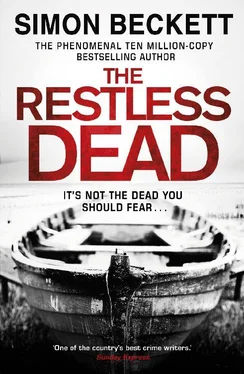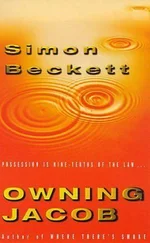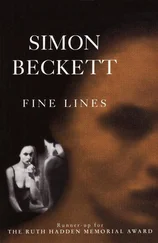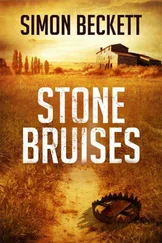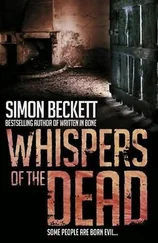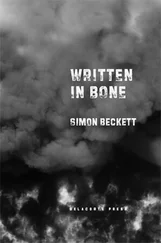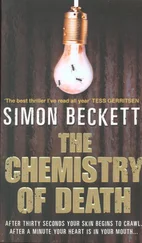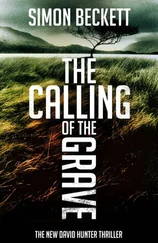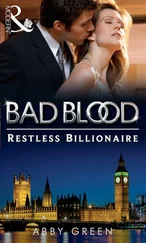What he couldn’t live with was other people knowing about it.
His former son gave no interviews, either before or after his father died two days later. Disliking the air of voyeurism that now surrounded the case, I tried to avoid the gossip and speculation that rushed to fill the vacuum. But it was impossible to ignore altogether. One particular video clip was shown again and again. It was outside the glass doors of a building I recognized as the police headquarters I’d been to myself. There was movement inside, then the doors opened and someone emerged.
Leo Villiers had been a good-looking man, and Lena Merchant was a striking woman. She was elegant and smartly dressed, with well-cut, medium-length dark hair. I’d never met Villiers, and it was strange now to see this person I’d heard and read so much about. She was immediately engulfed by microphones and cameras, and I expected her to hurry away from the attention. Instead, she calmly walked through the jostling scrum, head held high as she ignored the questions fired at her. There was no shame, no embarrassment. Not any more.
Just a dignified silence as she walked away from her old life and into a new one.
I put the skull back in the box and rubbed the back of my neck. The vertebrae there clicked as the stiff muscles reluctantly acclimatized to the idea of moving again. Not for the first time, I told myself I needed to set an alarm to remind me to take breaks while I was working.
Not for the first time, I knew I wouldn’t.
I set the box in a cupboard under the workbench. The skull was an historic one, an archaeological relic found on Salisbury plain. It was over seven hundred years old, and there was damage to it that the archaeologists thought could have been made by an axe. It was possible. People were no less inclined to kill each other in the fourteenth century than they were today. Still, I was unconvinced. The wound had been made by something with an edge, but not a bladed one, and there was a curvature about it that didn’t shout axe to me. While I couldn’t categorically rule out some other type of weapon, I’d seen similar injuries before, and had a pretty good idea what might have caused this. A glancing blow from a horse’s hoof might be less dramatic from an historical perspective, but it was no less fatal to the person receiving it.
I would have to examine it further to be sure, but there was no rush to do it now. The skull had kept its secret for several centuries: another day or two wouldn’t make any difference. It was a Saturday morning, so there was no real reason for me to be at the university anyway. I’d only gone in because I hadn’t wanted to sit around my flat. The skull made a convenient excuse.
But the thoughts that had driven me here in the first place were still waiting, and without the distraction of work to keep them at bay now they crowded in again. I automatically looked at my watch, catching myself too late to keep from seeing the time.
Two more hours.
The café was closed at weekends, but I made myself a coffee in the department’s tiny kitchen. There was no one else around. The corridors were empty and silent, which as a rule didn’t bother me. Today, though, the emptiness weighed more heavily than usual.
If I hadn’t been exactly welcomed back at the university with a fanfare of trumpets, there was a definite sense that things had changed. I’d escaped any mention in the news coverage of what had happened in the Backwaters, which was hardly surprising. With so many more sensational aspects to report, no one cared very much about the peripheral involvement of a forensic anthropologist. That suited me. I hadn’t enjoyed the attention the previous year, when my name and photograph had appeared in media reports after the Dartmoor case. My job was supposed to be behind the scenes, and I preferred to keep it that way.
But professionally it was another matter. My connection with such a high-profile police inquiry didn’t hurt the department’s reputation, and the new head’s attitude towards me had noticeably thawed. ‘Good to see you back in the game,’ Harris had beamed on my first day back. Nothing about what had happened in the Backwaters could remotely have been described as a ‘game’, but I took his point.
I should have been relieved not to find myself back in the job market, but that didn’t seem so important any more. I sipped the hot coffee and took another look at my watch. Half past twelve.
Another hour before Rachel’s flight would take off for Australia.
We’d only seen each other once after she came to Covent Garden to tell me she was leaving. It had been at Lundy’s funeral, a formal affair with police dignitaries as well as rank and file officers paying tribute to a colleague killed in the line of duty. The sombre mood seemed out of keeping with the cheerful DI I’d known, and it was a relief when it was unexpectedly lightened. The reading was from Ecclesiastes, and as the bishop intoned about ‘a time to plant and a time to uproot’ a young girl’s voice suddenly piped out.
‘But Granddad hated gardening!’
A ripple of laughter went around the church, and the solemnity was broken. I thought Lundy would have liked that.
There hadn’t been an opportunity to really talk to Rachel at the funeral, and even if there had it was neither the time nor the place. We’d spoken several times on the phone afterwards, though, and I’d begun to sense she was having second thoughts about leaving. I’d told her how I felt, but I’d resisted the urge to pressure her to stay, knowing the decision had to be hers.
In the end she’d made it.
She hadn’t wanted me to go to the airport. I could understand why, but I’d still been bitterly disappointed not to see her one more time. Our last conversation was a strain for both of us. She’d promised that she’d be coming back to the UK at some point, for Jamie’s trial if not before. He’d finally been charged with Anthony Russell’s murder, although there was a good chance that would be dropped to a lesser charge of manslaughter before it came to court.
But we both knew his case wouldn’t be heard for months, and a lot could have changed by then. Rachel had a life and career in Australia, one that involved swimming on the barrier reef rather than grubbing for eels in the Essex mud. And she was going back to make a go of a broken relationship, with a man she’d lived and worked with for seven years. He even surfed, for God’s sake.
I didn’t say any of that. Rachel was right, this was hard enough already. So I went along with the fantasy that it wasn’t goodbye. I told her to take care, kissed her one last time. And then she was gone.
My coffee had gone cold. I poured it down the sink and began washing out my mug. When my phone rang I felt a brief hope it might be Rachel until I saw that the number was withheld. Work, then. Trying to ignore the disappointment, I answered.
‘Dr Hunter? It’s Sharon Ward.’ The voice was familiar and so was the name, but just then I couldn’t place either. ‘DI Ward?’ she added, tentatively.
‘Yes, of course.’ The name came back to me from a year or two ago. I’d met her when a dismembered body part had, in a very literal way, turned up on my doorstep.
‘Have I caught you at a bad time?’ she asked.
‘No, I was just...’ I tried to gather myself. ‘What can I do for you?’
‘I need to have a word with you about the attempted break-in.’
‘Break-in?’
‘The one at your flat...?’
I’d assumed the call must be about a case. The break-in seemed like an age ago, and I’d practically forgotten all about it. I made an effort to focus. ‘Right. Sorry.’
‘Can we meet?’
‘Sure. I’m around all next week, so pretty much any day then.’
Читать дальше
